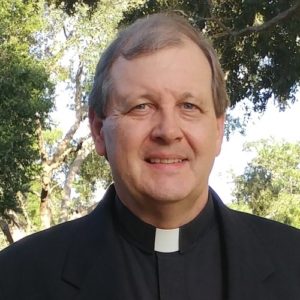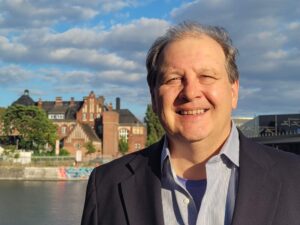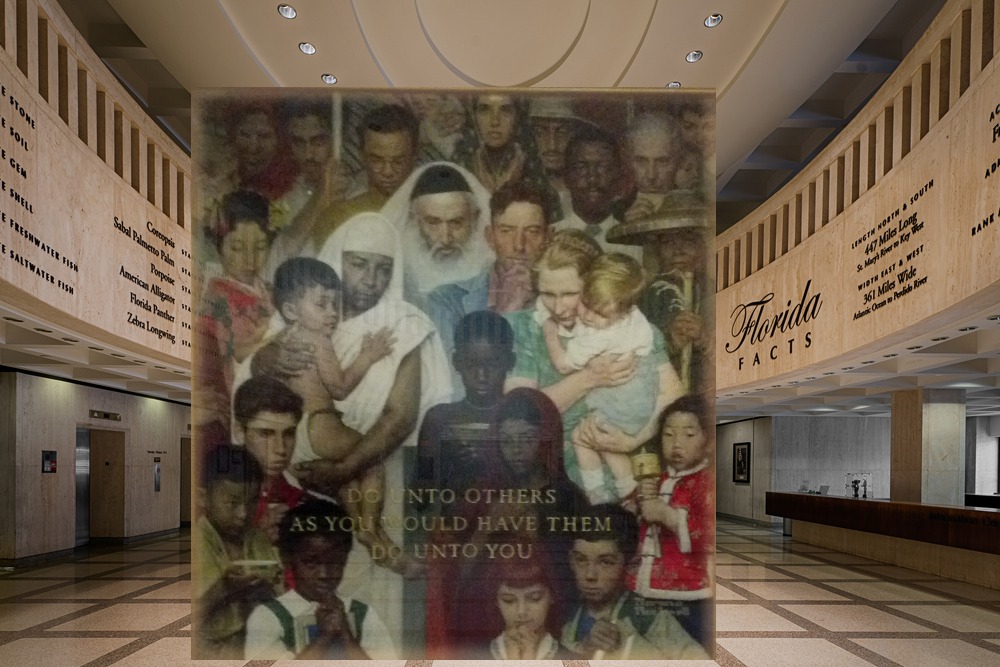Welcoming the Beloved Community into the Present, leading through conversation, renewing through relationships, inspiring through shared experiences, tending the field of the future in which all flourish: I find joy in bringing diverse people together in an open space where new communities of action emerge.
Since 2005, The Rev. Dr. Russell L. Meyer has led Florida’s historic Protestant churches in public witness for the commons. Working with a multi-faith commitment from a holistic perspective, he accents the values of our shared humanity. His doctoral work focused on designing community conversations that lead to collective action using social field theory.
Dr. Meyer engages in statewide interfaith efforts on climate, healthcare, justice reform, refugees, and civic engagement. He leads the newly created Florida Faith Advocacy Office of the Council and convenes the Florida Interfaith Climate Actions Network. Along with several activists and researchers, he has been a catalyst for realizing the Transformative Learning Community in Tampa Bay to promote conversational leadership and a principal in the Florida Network weekly online forum for conversational leadership.
Since the killing of Trayvon Martin, he has supported and helped organize numerous public events for a just society. As a founding member of a coalition on education equity, he has been instrumental in bringing Black high schools students to the legislative assembly to address historic disparities in public education. In 2017, the state legislative appointed him to the Dozier Memorial Task Force. He has helped lead to proclamations that the City of St. Petersburg is a City of Compassion and a City of International Peace. He is passionate about realizing a pluralistic democratic society.
Dr. Meyer has dual ministry roles. He is currently taking his church, St. John’s Lutheran Church – Jacksonville, founded in 1877, through a renovation and renewal to address the current needs of that urban community. It’s former Bible School will be re-dedicated as the Imagine Center – a community enrichment cultural arts site. As Executive Director for the Florida Council of Churches, he serves to elevate the faith of churches whose million members anchor communities across Florida. He has also taught collegiate courses in ethics and world religions. During his previous tenure in Lakeland, he presided over the local ecumenical council and helped found the Polk Ecumenical Action Council for Empowerment (PEACE – an interfaith community organization). He has served on various national faith committees, including as president of the North American Academy for Ecumenism and as chair of the Local and Regional Ecumenism Committee of the National Council of Churches in Christ. He has coordinated the Cuba Accompaniment Team of the Florida-Bahamas Synod ELCA with the Lutheran churches across Cuba since 2013.
Dr. Meyer has led numerous faith workshops on interdenominational understandings, interfaith declarations, community organizing, social justice, immigrant support, and Cuban religious life. He is regularly invited to provide a faith perspective on major public issues of the day from climate change to criminal justice reform and immigrant rights. He is active with frontline community organizers and has provided leadership for some of the largest police reform marches in Florida. His ministry extends throughout church and society. He believes God has provided abundantly so that all may thrive and that the Church rightly champions a moral economy.
Rev. Meyer has served congregations in Jacksonville FL, Tampa FL, Lakeland FL, Charleston SC, Towson MD, and Wantagh NY.
- 2013 – Doctor of Ministry, Wesley Theological Seminary, Washington DC with Certificate in Christian & Islamic Relations
- 1981 – Master of Divinity, Yale Divinity School, New Haven CT
- 1978 – Bachelor of Arts, Baker University, Baldwin City KS
In a true conversation, we unlearn the boundaries of our identity. This is not about forgetting who we are, but relaxing the limits by which we have identified who others are. We listen no longer for the differences. We listen for how the other finds connection with the whole we find ourselves connected too. Together, we realize our common bond of being connected to the Whole that names each of us.


